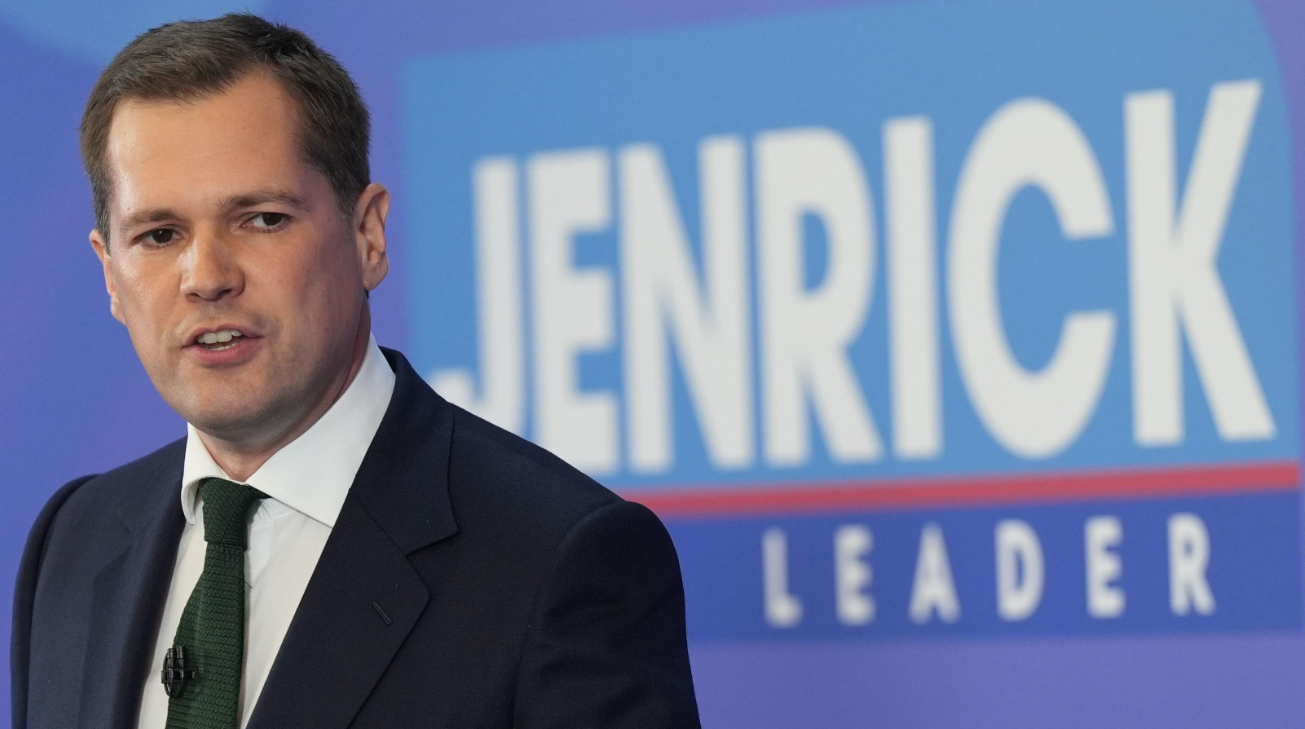Robert Jenrick Launches Bid for Conservative Leadership Promises Change By Radamm. com
Robert Jenrick, a prominent Conservative MP, has officially launched his campaign to replace Rishi Sunak as the leader of the Conservative Party. Jenrick believes the Conservatives have a chance to win the next general election but insists that the party must confront some hard truths and reject defeatism. As one of the six candidates vying for the leadership, Jenrick aims to revitalize the party and address its recent failures. Read the full news here at Radamm. com.
The Leadership Race
Jenrick’s entry into the leadership race is part of a competitive field of candidates. Alongside Jenricck, the other contenders are Kemi Badenoch, James Cleverly, Dame Priti Patel, Mel Stride, and Tom Tugendhat. Each candidate must secure the backing of at least 10 Conservative MPs to stand a chance in the race.
The process to select the new leader will be a multi-stage event:
- September: The number of candidates will be reduced from six to four through a series of votes by Tory MPs.
- Party Conference: The final four will present their cases to Conservative Party members at the party’s conference in Birmingham.
- Final Selection: Further ballots will narrow the field to the final two candidates. Party members will then vote online to choose the new leader.
- Result Announcement: Voting will end on October 31, with the result announced on November 2.
Jenrick’s Vision for the Party
In his campaign launch, Jenrick addressed supporters in his Newark constituency, emphasizing the need for the Conservatives to adopt a more realistic approach. He argued that the party’s recent election defeat was largely due to its failure to keep promises on reducing immigration, which he believes alienated many voters.
Jenrick’s perspective is that while the Conservatives are facing a significant challenge, they are not beyond redemption. He encouraged the party to move away from defeatism and focus on practical solutions to their problems. He stressed that the party must change significantly to secure a future and win back public support.
Criticisms and Proposals
During his speech, Jenricck criticized the Conservative government for failing to manage immigration effectively and for losing its reputation for sound economic management. He pointed out issues like low economic growth and high taxation as factors that contributed to the party’s poor performance in recent elections.
Jenrick proposed several key changes to address these issues:
- Immigration: He stated that the party needs to be firm on immigration policies. He supports capping net migration at a level decided by Parliament, ideally in the tens of thousands. Additionally, he expressed a desire to reinstate the Rwanda scheme for handling illegal immigration, although he acknowledged this would likely take several years to achieve.
- Housing and NHS: Jenrick highlighted the need to build more homes to attract young voters. He also advocated for ensuring that the NHS serves patients effectively rather than being treated as an untouchable institution. Jenrick criticized previous Conservative governments for avoiding difficult decisions regarding the NHS out of fear of criticism.
Support and Endorsements
Jenrick’s campaign has garnered support from several prominent figures within the party. He was introduced by former minister Esther McVey, who praised his media skills and communication abilities. McVey believes that Jenrick has the potential to turn around the Conservative Party’s fortunes by persuading rather than provoking the public.
Jenrick has also gained backing from right-wing supporters, including Sir John Hayes and former Home Secretary Suella Braverman’s supporters. Although Braverman herself was expected to run for the leadership, she decided against it, citing a lack of support from most MPs.
Reflection on Recent Defeats
Jenrick’s campaign is partly fueled by his reflections on the party’s recent setbacks. The Conservatives experienced their worst-ever election defeat last month, with Jenrick’s own majority in Newark significantly reduced from around 20,000 to less than 4,000. He acknowledged that the party has a “mountain to climb” but remains optimistic that with the right changes, they can recover and succeed in future elections.
Conclusion
Robert Jenricck’s bid for the Conservative leadership represents a significant moment for the party as it seeks to rebound from recent electoral defeats. His focus on addressing immigration, economic management, and public services like the NHS underscores his commitment to a realistic and pragmatic approach to politics. As the selection process unfolds, Jenrick’s proposals and endorsements will play a crucial role in determining his chances of becoming the new leader and ultimately guiding the Conservative Party towards a successful future.
